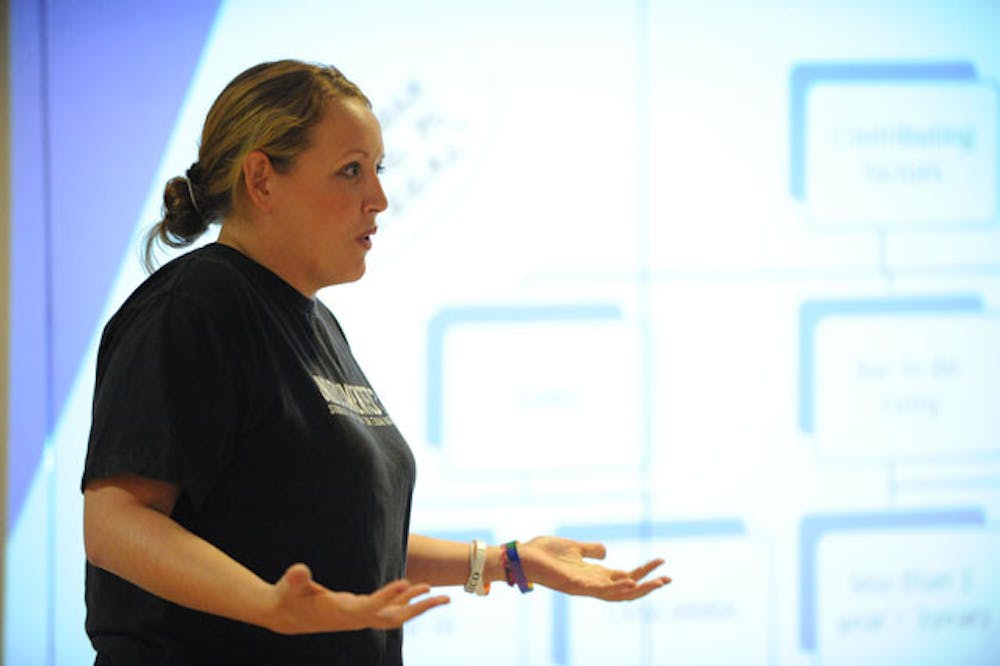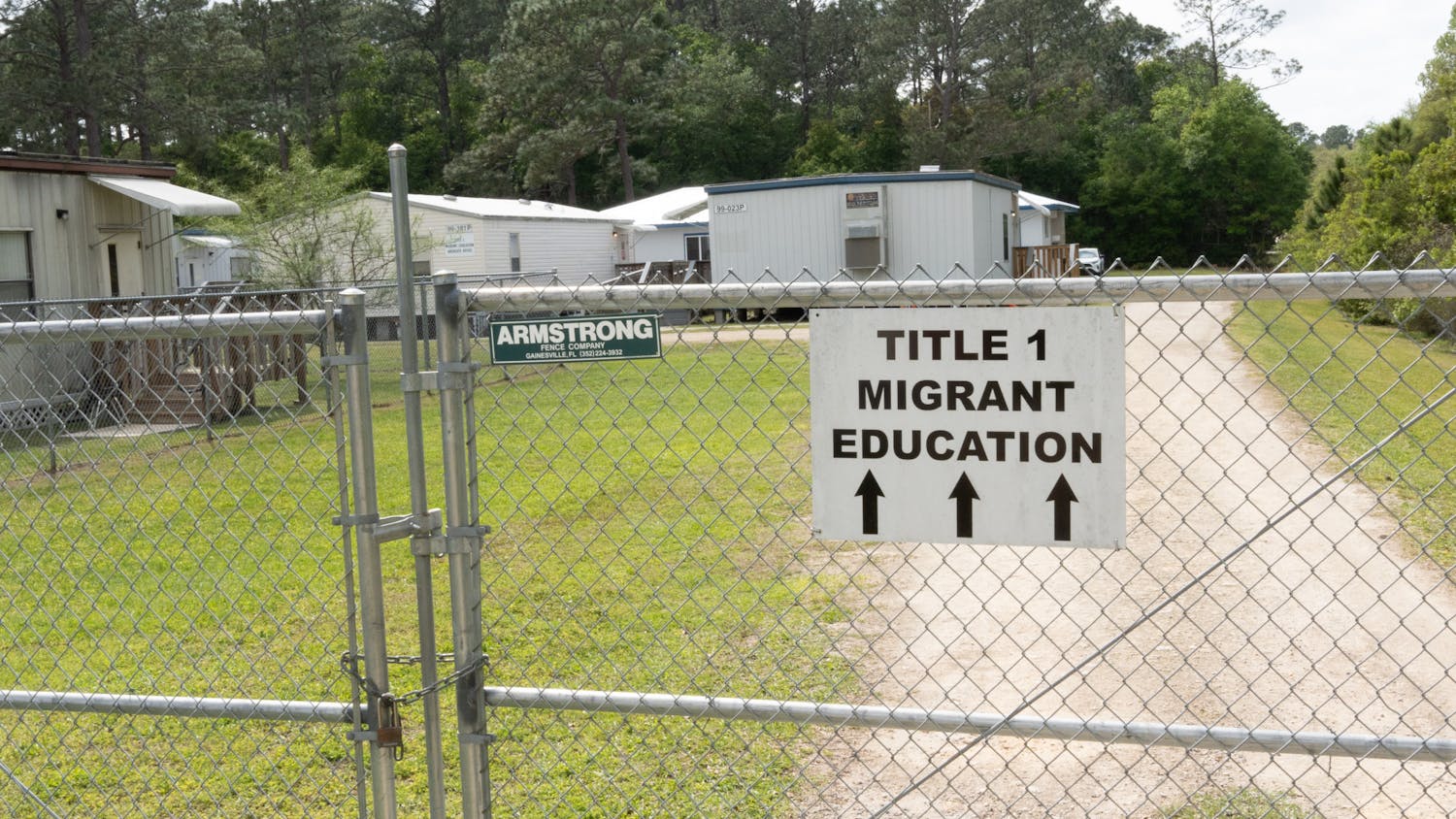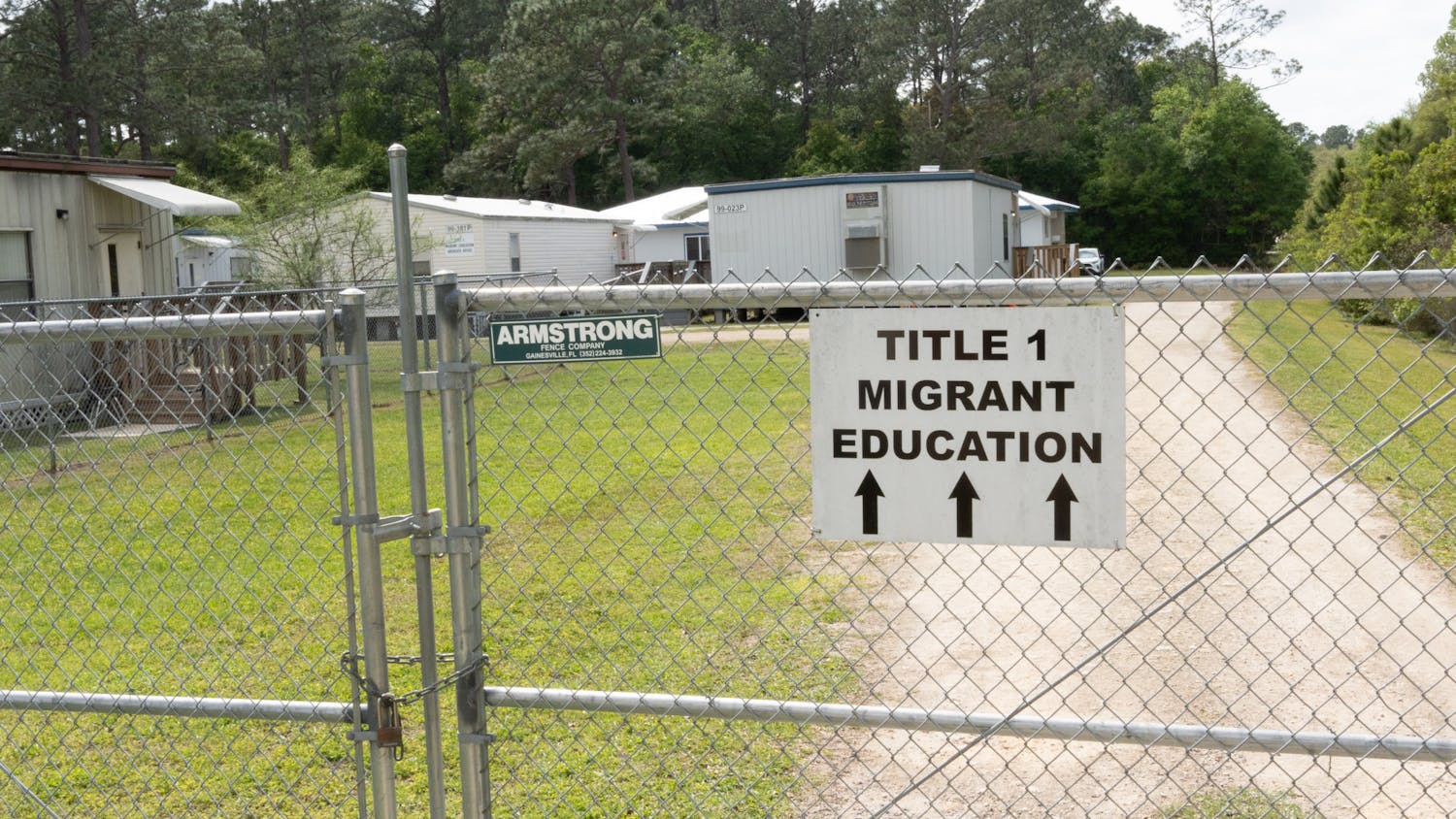They graduated from U.S. high schools. They're students at U.S. universities. They're fighting overseas for this country. And they're not allowed to be here.
Undocumented aliens brought to the United States as children may have lived here for the majority of their lives and consider themselves Americans, but the law disagrees.
The Gainesville Interfaith Alliance for Immigrant Justice held an educational presentation Wednesday night to inform community members about a legislative proposal called the DREAM Act.
The DREAM Act targets the issue of undocumented immigrants, of which there are 12 million in the U.S., and it provides solutions to change the laws that keep them from citizenship.
In a small, quiet room at the Unitarian Universalist Fellowship of Gainesville, hosts Vickie Mena and Kimberly Hunter preached to a group of less than 20 the importance of why they believe this act should be passed.
"We feel like it's something that has a possibility to become a reality," said Hunter, a UF alumnus.
DREAM stands for Development, Relief and Education for Alien Minors. It states that if an undocumented alien was brought to the U.S. before the age of 16 has a U.S. high school diploma or GED certificate, has lived in the country for at least five consecutive years, and has no criminal record, he or she can be granted conditional permanent residency.
In order to complete the process, the undocumented alien would have to complete two years of military service or two years at a four-year university.
According to Mena, program coordinator for the Bob Graham Center for Public Service, and her research, passing the DREAM Act would save taxpayers money, aid military recruitment and satisfy needs in the labor force for jobs such as teachers and nurses.
It was unanimous, however, that the largest problem surrounding the DREAM Act is that the public doesn't know what it is.
The act was voted on by Congress a few weeks ago but wasn't passed.
"I got a lot of phone calls that day from kids in tears," Mena said.
She said that the issue directly affects UF students. She could think of six or seven students who she knows are undocumented and struggling to finish their education and plan their futures.
The DREAM Act will be voted on as a stand-alone bill between Nov. 2 and January. Mena said the best way to raise awareness is to sign petitions, spread the word and call congressmen. She and Hunter also hope to speak to campus or community groups who are interested in learning more.
Through their presentations, Mena and Hunter have gathered 679 signatures on the DREAM Act petition since July 27. Mena said it's a great start, but they still have a long way to go.
"It doesn't really end with DREAM," Mena said. "But it's something we can do."






